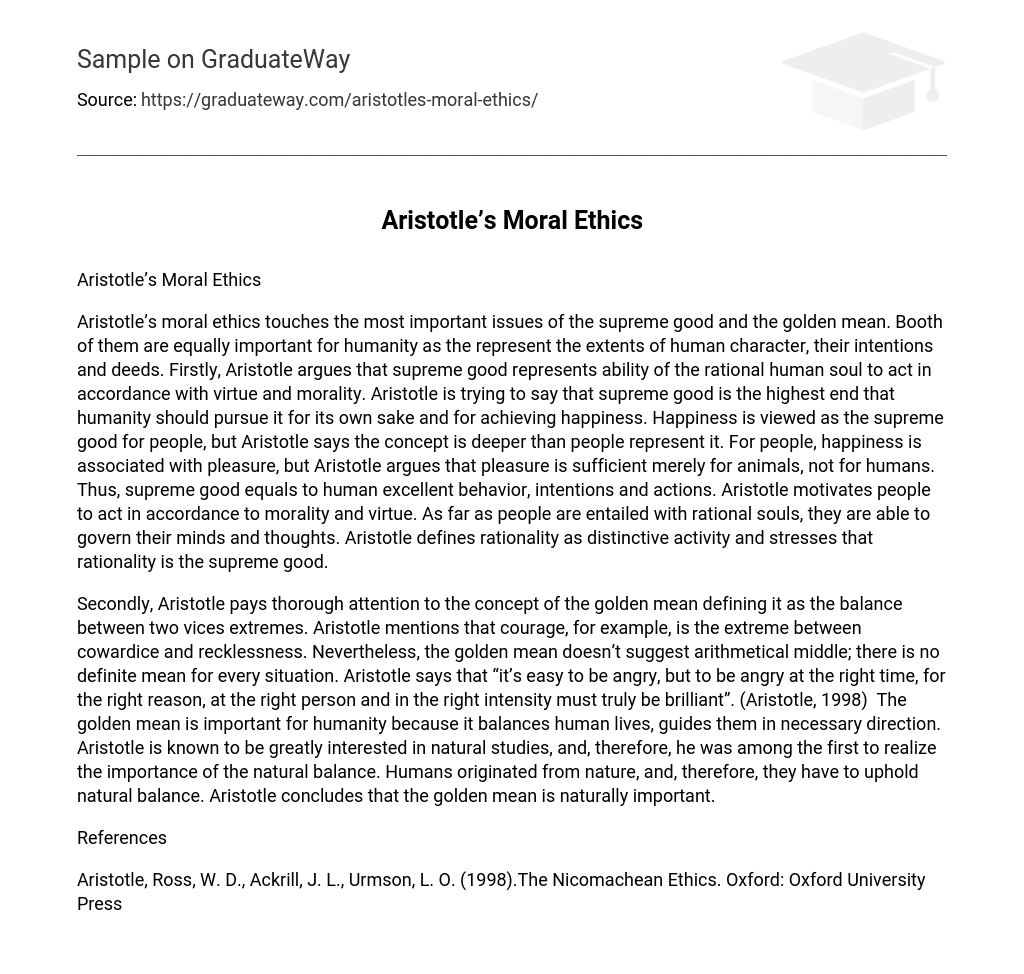Aristotle’s moral ethics touches the most important issues of the supreme good and the golden mean. Booth of them are equally important for humanity as the represent the extents of human character, their intentions and deeds. Firstly, Aristotle argues that supreme good represents ability of the rational human soul to act in accordance with virtue and morality. Aristotle is trying to say that supreme good is the highest end that humanity should pursue it for its own sake and for achieving happiness. Happiness is viewed as the supreme good for people, but Aristotle says the concept is deeper than people represent it. For people, happiness is associated with pleasure, but Aristotle argues that pleasure is sufficient merely for animals, not for humans. Thus, supreme good equals to human excellent behavior, intentions and actions. Aristotle motivates people to act in accordance to morality and virtue. As far as people are entailed with rational souls, they are able to govern their minds and thoughts. Aristotle defines rationality as distinctive activity and stresses that rationality is the supreme good.
Secondly, Aristotle pays thorough attention to the concept of the golden mean defining it as the balance between two vices extremes. Aristotle mentions that courage, for example, is the extreme between cowardice and recklessness. Nevertheless, the golden mean doesn’t suggest arithmetical middle; there is no definite mean for every situation. Aristotle says that “it’s easy to be angry, but to be angry at the right time, for the right reason, at the right person and in the right intensity must truly be brilliant”. (Aristotle, 1998) The golden mean is important for humanity because it balances human lives, guides them in necessary direction. Aristotle is known to be greatly interested in natural studies, and, therefore, he was among the first to realize the importance of the natural balance. Humans originated from nature, and, therefore, they have to uphold natural balance. Aristotle concludes that the golden mean is naturally important.
References
Aristotle, Ross, W. D., Ackrill, J. L., Urmson, L. O. (1998).The Nicomachean Ethics. Oxford: Oxford University Press





